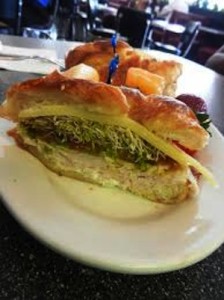When Michael Pollan endorses an article, I know it’s BS.
 So it is with Kate Murphy’s piece in the New York Times on Sunday, that says the U.S. food supply is “arguably the safest in the world” and asks “whether our food could perhaps be too clean.”
So it is with Kate Murphy’s piece in the New York Times on Sunday, that says the U.S. food supply is “arguably the safest in the world” and asks “whether our food could perhaps be too clean.”
I’ve been hearing this for 25 years. It’s a tantalizing belief but at this point that’s all it is – a belief.
Cherry-picking data to support a pre-existing theory remains a belief.
I could tell an equal number of stories about my mother who got undulate fever from raw milk as a child, or my aunt who suffered with cyclospora from basil in Florida, or Champan who spent a weekend in our toilet from Campylobacter in Kansas, but it’s not science.
There are research areas worth exploring, but we humans don’t know much about applying this germ theory, especially to the genetically susceptible.
The theory that there might be such a thing as “too clean” food stems from the hygiene hypothesis, which has been gaining traction over the last decade. It holds that our modern germaphobic ways may be making us sick by harming our microbiome, which comprises all the microscopic beasties — bacteria, viruses, fungi, mites, etc. — that live in and on our bodies.
Research so far has focused primarily on the detrimental effects of cesarean births and not breast-feeding, which may inhibit the formation of a robust microbiome, and the use of antibacterial soaps and antibiotics, which diminish the microbiome once it is established.
A result is an immune system that essentially gets bored, spoiling for a fight and apt to react to harmless substances and even attack the body’s own tissues. This could explain the increasing incidence of allergies and autoimmune disorders such as asthma, rheumatoid arthritis and inflammatory bowel syndrome.
It could also explain my latest fart.
There is also the suggestion that a diminished microbiome disrupts hormones that regulate hunger, which can cause obesity and metabolic disorders.
When it comes to foodborne illness, the idea is that fewer good bacteria in your gut means there is less competition to prevent colonization of the bad microbes, leading to more frequent and severe bouts of illness.
Moreover, your underutilized immune system may lose its ability to discriminate between friend and foe, so it may marshal its defenses inappropriately (e.g., against gluten and lactose) or not at all.
All of this is hard to prove.
That should be the headline.
Anyone who has visited a country with less than rigorous sanitation knows the locals don’t get sick from foods that can cause tourists days of toilet-bound torment.
 That’s because the susceptible ones have died off.
That’s because the susceptible ones have died off.
“We have these tantalizing bits of evidence that to my mind provide pretty good support for the hygiene hypothesis, in terms of foodborne illness,” said Guy Loneragan, an epidemiologist and professor of food safety and public health at Texas Tech.
Yes, it’s tantalizing.
This is not to say we’d be better off if chicken producers eased up on the salmonella inspections, we ate recalled ice cream sandwiches and didn’t rinse our produce.
Rinsing produce ain’t going to do much either way; but may make the consumer feel cleaner.
Murphey says it is worth noting that serious foodborne diseases — the ones that make it into the news, like listeria, salmonella, E. coli, cryptosporidium and campylobacter — are mainly diseases of immuno-compromised populations.
Nonsense.
The E. coli O104 outbreak in sprouts in Germany in 2011 that killed 53 and sickened 4,400 primarily struck middle-aged, health women, because they eat more salads.
That’s science.
